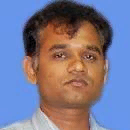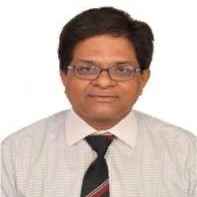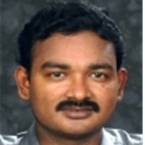International Journal of Image, Graphics and Signal Processing (IJIGSP)
IJIGSP Vol. 9, No. 9, 8 Sep. 2017
Cover page and Table of Contents: PDF (size: 913KB)
Texture Classification based on Local Features Using Dual Neighborhood Approach
Full Text (PDF, 913KB), PP.59-67
Views: 0 Downloads: 0
Author(s)
Index Terms
Local binary pattern (LBP), Uniform LBP (ULBP-DTM), ternary patter, dual neighborhood, texture spectrum (TS)
Abstract
Texture classification and analysis are the most significant research topics in computer vision. Local binary pattern (LBP) derives distinctive features of textures. The robustness of LBP against gray-scale and monotonic variations and computational advantage have made it popular in various texture analysis applications. The histogram techniques based on LBP is complex task. Later uniform local binary pattern’s (ULBP) are derived on LBP based on bit wise transitions. The ULBP’s are rotationally invariant. The ULBP approach treated all non-uniform local binary pattern’s (NULBP) into one miscellaneous label. This paper presents a new texture classification method incorporating the properties of ULBP and grey-level co-occurrence matrix (GLCM). This paper derives ternary patterns on the ULBP and divides the 3 x 3 neighborhood in to dual neighborhood. The ternary pattern mitigates the noise problems particularly near uniform regions. The dual neighborhood reduces the range of texture unit from 0 to 6561 to 0 to 80. The GLCM features extracted from ULBP-dual texture matrix (ULBP-DTM) provide complete texture information about the image and reduce the texture unit range. Various machine learning classifiers are used for classification purpose. The performance of the proposed method is tested on Brodtaz, Outex and UIUC’s textures and compared with GLCM, texture spectrum (TS) and cross-diagonal texture matrix (CDTM) approaches.
Cite This Paper
M. Srinivasa Rao, V.Vijaya Kumar, MHM KrishnaPrasad,"Texture Classification based on Local Features Using Dual Neighborhood Approach", International Journal of Image, Graphics and Signal Processing(IJIGSP), Vol.9, No.9, pp.59-67, 2017. DOI: 10.5815/ijigsp.2017.09.07
Reference
[1]G. Eichmann and T. Kasparis, 1988, “Topologically invariant texture descriptors,” Comput. Vis. Graph, Image Process., vol. 41, no. 3, pp. 267–281, Mar.
[2]R. L. Kashyap and A. Khotanzad, 1986, “A model-based method for rotation invariant texture classification,” IEEE Trans. Pattern Anal. Mach. Intell., vol. 8, no. 4, pp. 472–481
[3]M. Varma and A. Zisserman, 2009, “A statistical approach to material classification using image patch exemplars,” IEEE Trans. Pattern Anal. Mach. Intell., vol. 31, no. 11, pp. 2032–2047.
[4]V.Vijaya Kumar, U.S.N. Raju, K. Chandra Sekharan, V.V. Krishna ,2008, “A new method of texture classification using various wavelet transforms based on primitive patterns”, ICGST-Graphics, vision and image processing (ICGST-GVIP), Vol.8, No. 2, pp.21-27.
[5]V.Vijaya Kumar, B. Eswar Reddy, U.S.N. Raju, K. Chandra Sekharan, 2007, “An innovative technique of texture classification and comparison based on long linear patterns”, Journal of computer science, Science publications, Vol.3, No.8, pp.633-638.
[6]M. Varma, and A. Zisserman, 2005, “A statistical approach to texture classification from single images,” International Journal of Computer Vision, vol. 62, no. 1-2, pp. 61-81.
[7]U Ravi Babu, V Vijay Kumar, B Sujatha, 2012, ”Texture classification based on texton features”, International journal of image, graphics and signal processing (IJIGSP), Vol.4, No.8, pp.36-42.
[8]B.Eswara Reddy, P.ChandraSekhar Reddy, V.Vijaya Kumar, 2012 “Texton based shape features on local binary pattern for age classification”, International journal of image, graphics and signal processing (IJIGSP), Vol. 7, No.4, pp.54-60.
[9]T. Ojala, M. Pietikäinen, and T. Mäenpää, 2002, “Multi-resolution gray-scale and rotation invariant texture classification with local binary patterns,” IEEE Trans. Pattern Anal. Mach. Intell., vol. 24, no. 7, pp. 971–987.
[10]T. Ojala, M. Pietikäinen, D. Harwood, 1996, “A comparative study of texture measures with classification based on featured distributions”, Pattern Recogn. 29 (1), pp: 51–59.
[11]T. Mäenpää, M. Pietikäinen, 2003, “Multi-scale binary patterns for texture analysis”, in: Proceedings of 13th Scandinavian Conference on Image Analysis, G ¨oteborg, Sweden.
[12]T. Ojala, M. Pietikäinen, T. Mäenpää, 2002, “Multiresolution Gray-Scale and Rotation Invariant Texture Classification with Local Binary patterns”, IEEE Trans. Pattern Anal. Mach. Intell. 24 (7), pp: 971–987.
[13]X. Li, W.M. Hu, Z.F. Zhang, H.Z. Wang, 2010, “Heat kernel based local binary pattern for face representation”, IEEE Signal Process. Lett. 17 (3), pp: 308–311.
[14]G. Martens, C. Poppe, P. Lambert, R. Van De Walle, 2010, “Noise- and compression-robust biological features for texture classification”, Visual Comput. pp: 1–8.
[15]M. Srinivasa Rao , V.Vijaya Kumar, Mhm Krishna PrasadTexture Classification based on First Order Local Ternary Direction Patterns, I.J. Image, Graphics and Signal Processing, 2017, 2, 46-54.
[16]U Ravi Babu, V Vijaya Kumar ,J SasiKiran, 2012, “Texture analysis and classification based on fuzzy triangular grey level pattern and run length features”, Global journal of computer science and technology graphics & vision (GJCST), Vol. 12, No. 15, pp. 17-23.
[17]T. Ahonen, A. Hadid, M. Pietikäinen, 2006, “Face description with local binary patterns: application to face recognition”, IEEE Trans. Pattern Anal. Mach. Intell.28 (12), pp: 2037–2041.
[18]X. Feng, M. Pietikäinen, A. Hadid, 2005, “Facial expression recognition with local binary patterns and linear programming”, Pattern Recogn. Image Anal. 15 (2), pp: 546–548.
[19]B.J. Jun, T.W. Kim, D.J. Kim, 2011, “A compact local binary pattern using maximization of mutual information for face analysis”, Pattern Recogn. 44 (3), pp: 532–543.
[20]G S Murty ,J SasiKiran , V.Vijaya Kumar, “Facial expression recognition based on features derived from the distinct LBP and GLCM”, International Journal of Image, Graphics And Signal Processing (IJIGSP), Vol.2, Iss.1, pp. 68-77,2014, ISSN: 2074-9082.
[21]V.Vijaya Kumar, P.J.S. Kumar , Pullela S V V S R Kumar, 2015, “Age classification of facial images using third order neighbourhood Local Binary Pattern”, International Journal of Applied Engineering Research Volume 10, Number 15, pp 35704-35713
[22]G. SatyanarayanaMurth, J.SasiKiran, V. Vijaya Kumar, “ Facial expression recognition based on features derived from the distinct LBP and GLCM, I.J. Image, Graphics and Signal Processing (IJIGSP), Vol. 2, 2014, pp: 68-77, ISSN: 2074-9074.
[23]V. VijayaKumar ,Jangala. SasiKiran , V.V. HariChandana, “ An effective age classification using topological features based on compressed and reduced grey level model of the facial skin”, International journal of image, graphics and signal processing (IJIGSP), , Vol.6, Iss.1, 2013, pp.9-17, ISSN: 2074-9082.
[24]V. Vijaya Kumar, P. Chandra Sekhar Reddy, B. Eswara Reddy, 2015, ”New method for classification of age groups based on texture shape features”, International journal imaging and robotics, Vol. 15, No.1.
[25]K. Srinivasa Reddy, V.Vijaya Kumar, B.Eshwarareddy, 2015, “Face Recognition based on Texture Features using Local Ternary Patterns”, I.J. Image, Graphics and Signal Processing, 10, 37-46
[26]V.Vijaya Kumar, A. Srinivasa Rao, 2015, YK Sundara Krishna, “Dual Transition Uniform LBP Matrix for Efficient Image Retrieval”, I.J. Image, Graphics and Signal Processing, 8, 50-57.
[27]X. Tan, and B. Triggs, 2007, “Enhanced Local Texture Feature Sets for Face Recognition Under Difficult Lighting Conditions,” in Proc. International Workshop on Analysis and Modeling of Faces and Gestures, pp.168-182.
[28]X. Huang, S. Z. Li, and Y. Wang, 2004, “Shape localization based on statistical method using extended local binary pattern,” in Proc. International Conference on Image and Graphics, pp.184-187.
[29]S. Liao, M. W. K. Law, and A. C. S. Chung, 2009, “Dominant local binary patterns for texture classification,” IEEE Trans. on Image Processing, vol. 18, no. 5, pp. 1107-1118.
[30]M. Heikkilä, M. Pietikäinen, C. Schmid, 2009, “Description of interest regions with local binary patterns,” Pattern Recognition, vol. 42, no. 3, pp. 425-436.
[31]K.Srinivasa Reddy, V.V.Krishna, V.Vijaya Kumar, 2015, “Face Recognition using Multi Region Prominent LBP representation”, Journal of Information Processing Systems, International Journal of Electrical and Computer Engineering (IJECE), Vol. 6, No. 6, December 2016, pp. 2781~2788.
[32]X. Qi, R. Xiao, C.-C. Li, Y. Qiao, J. Guo, and X. Tang, 2014, “Pairwise rotation invariant co-occurrence local binary pattern,” IEEE Trans. Pattern Anal. Mach. Intell., vol. 36, no. 11, pp. 2199–2213.
[33]S. Hussain and B. Triggs, 2012, “Visual recognition using local quantized patterns,” in Proc. Eur. Conf. Comput. Vis., pp. 716–729.
[34]S. H. Lee, J. Y. Choi, Y. M. Ro, and K. N. Plataniotis, 2012, “Local color vector binary patterns from multichannel face images for face recognition,” IEEE Trans. Image Process., vol. 21, no. 4, pp. 2347–2353.
[35]Zhibin Pan, Hong cheng Fan, and Li Zhang, 2015, “Texture Classification Using Local Pattern Based on Vector Quantization”, IEEE Transactions on Image Processing, Vol. 24, No. 12.
[36]T. Randen and J.H. Husoy, 1990, “Filtering for Texture Classification: A Comparative Study”, IEEE Trans. Pattern Analysis and Machine Intelligence, vol. 21, pp. 291-310, 1999.
[37]Ruiz-del-Solar, Rodrigo Verschae, and Mauricio Correa. "Recognition of faces in unconstrained environments: a comparative study." EURASIP Journal on Advances in Signal Processing 2009 (2009).
[38]Samaria, Ferdinando S., and Andy C. Harter. "Parameterisation of a stochastic model for human face identification." In Applications of Computer Vision, 1994., Proceedings of the Second IEEE Workshop on, pp. 138- 142. IEEE, 1994.
[39]D.C. He, L. Wang, “Texture unit, texture spectrum, and texture analysis”, IEEE Trans. Geosci. Remote sens. 28 (4), pp: 509–512.
[40]R. M. Haralick, K. Shanmugam, and I. Dinstein, “Textural features for image classification,” IEEE Trans. Syst., Man, Cybern., Vol. SMC-3, no. 6, pp. 610–621, Nov. 1973.
[41]P. Brodatz, Texture, 1968, “A Photographic Album for Artists and Designers” , Reinhold, New York, 1968.
[42]Svetlana Lazebnik, Cordelia Schmid, and Jean Ponce. A Sparse Texture Representation Using Local Affine Regions. IEEE Transactions on Pattern Analysis and Machine Intelligence, vol. 27, no. 8, pp. 1265-1278, August 2005.
[43]http://www.outex.oulu.fi/index.php?page=image_database.
[44]Abdulrahman Al-Janobi, “Performance evaluation of cross-diagonal texture matrix method of texture analysis”, Pattern Recognition 34, pp: 171-180, 2001.


